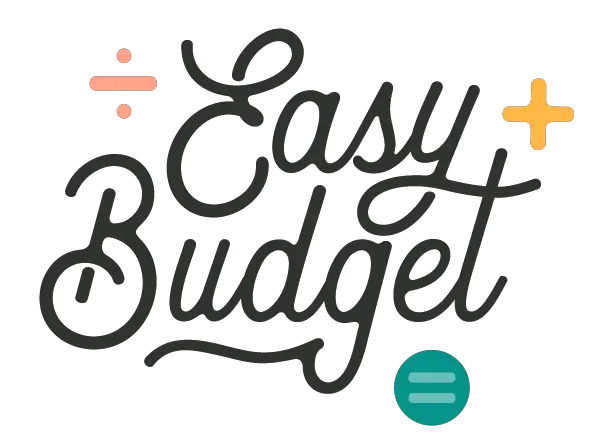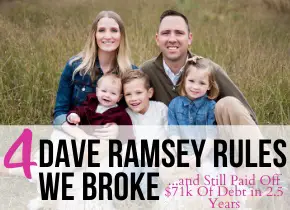This post may contain affiliate links where I earn a commission, at no additional cost to you, if you decide to make a purchase after clicking on a link. Please see our Disclosure Policy for full details. Thank you for your support!
Consolidating your credit card debt is an effective strategy to simplify your finances and save money. In this comprehensive guide, we’ll walk you through the process of debt consolidation and discuss various options to help you choose the best one for your situation. Let’s dive in!
Table of Contents
- Understanding Credit Card Debt Consolidation
- Methods of Consolidating Credit Card Debt
- Balance Transfer Credit Cards
- Debt Consolidation Loans
- Home Equity Loans or Lines of Credit
- Debt Management Plans
- Comparing Debt Consolidation Options
- How to Choose the Best Consolidation Method for You
- The Impact of Consolidation on Your Credit Score
- Credit Card Debt Consolidation FAQs
- Conclusion
Understanding Credit Card Debt Consolidation
Credit card debt consolidation is the process of combining multiple high-interest credit card balances into a single lower-interest loan or payment plan. This strategy helps reduce the number of payments you need to make each month and can potentially lower your overall interest rate, saving you money in the long run. Additionally, debt consolidation can make it easier to manage your finances and stay on track with your debt repayment plan.
Methods of Consolidating Credit Card Debt
There are several ways to consolidate your credit card debt. The best option for you depends on your financial situation, credit score, and goals. Let’s explore the most common debt consolidation methods:
Balance Transfer Credit Cards
A balance transfer credit card allows you to transfer your existing credit card balances to a new card, typically with a lower interest rate or a 0% introductory APR for a limited period. This can help you save on interest payments while you focus on paying down your debt.
Pros:
- Potential for a lower interest rate or 0% introductory APR
- Simplifies your monthly payments by consolidating multiple credit card balances
Cons:
- Balance transfer fees, typically 3% to 5% of the transferred amount
- Higher interest rates may apply after the introductory period expires
Debt Consolidation Loans
A debt consolidation loan is a personal loan used to pay off multiple credit card balances. The loan typically has a fixed interest rate and a set repayment term, making it easier to budget for your monthly payments.
Pros:
- Potentially lower interest rates compared to credit card rates
- Fixed repayment term helps you create a predictable payment plan
- Can improve your credit score by reducing credit utilization
Cons:
- May require a good credit score to qualify for the best rates
- Origination fees may apply, increasing the overall cost of the loan
Home Equity Loans or Lines of Credit
If you’re a homeowner with sufficient equity in your property, you can use a home equity loan or a home equity line of credit (HELOC) to consolidate your credit card debt. These options use your home as collateral, allowing you to secure lower interest rates compared to unsecured loans.
Pros:
- Lower interest rates than unsecured personal loans or credit cards
- Potential tax advantages on interest paid, depending on how the funds are used
Cons:
- Your home is used as collateral, increasing the risk of foreclosure if you default on payments
- Closing costs and fees can add to the overall cost of the loan
Debt Management Plans
A debt management plan (DMP) is a structured repayment plan offered by a credit counseling agency. The agency negotiates with your creditors to reduce interest rates, waive fees, and create a single monthly payment plan for all your credit card debts.
Pros:
- Lower interest rates and waived fees help you save money
- Single monthly payment simplifies your finances
- Credit counseling offers budgeting assistance and financial education
Cons:
- Monthly fees may apply for the credit counseling service
- May take longer
- to pay off debts compared to other consolidation methods
- Requires closing your credit card accounts, which may impact your credit score
Comparing Debt Consolidation Options
When comparing debt consolidation options, consider the following factors:
- Interest rates: Aim for the lowest possible interest rate to minimize your overall cost.
- Fees: Be aware of any balance transfer fees, origination fees, or monthly fees associated with the consolidation method.
- Repayment term: Choose a repayment term that aligns with your budget and financial goals.
- Impact on your credit score: Understand how each option will affect your credit score, both in the short term and long term.
How to Choose the Best Consolidation Method for You
To select the right debt consolidation method for your needs, follow these steps:
- Assess your financial situation: Review your budget, credit score, and available resources to determine which options you qualify for and can afford.
- Compare consolidation methods: Weigh the pros and cons of each option, considering factors like interest rates, fees, and repayment terms.
- Seek professional advice: Consult a financial advisor or credit counselor for personalized guidance based on your unique circumstances.
- Create a repayment plan: Once you’ve chosen a consolidation method, develop a realistic repayment plan to help you stay on track and achieve your debt-free goals.
The Impact of Consolidation on Your Credit Score
Debt consolidation can have both positive and negative effects on your credit score, depending on the method you choose and how you manage your payments:
- Positive impact: Consolidation can reduce your credit utilization ratio, which may improve your credit score. Additionally, making on-time payments on your new loan or payment plan can help build a positive payment history.
- Negative impact: Applying for new credit (e.g., balance transfer credit card or debt consolidation loan) can result in a hard inquiry, which may temporarily lower your credit score. Closing credit card accounts as part of a debt management plan can also negatively affect your credit score.
Credit Card Debt Consolidation FAQs
Q: Will consolidating my credit card debt hurt my credit score?
A: The initial impact on your credit score may be negative due to hard inquiries or closed accounts. However, responsible debt management and on-time payments can lead to long-term credit score improvements.
Q: Can I consolidate my credit card debt if I have bad credit?
A: Yes, it’s possible to consolidate your credit card debt with bad credit, but your options may be limited. You might not qualify for the lowest interest rates, and some consolidation methods may be unavailable. Working with a credit counseling agency to develop a debt management plan can be a viable option if you have bad credit.
Q: Is debt consolidation the same as debt settlement?
A: No, debt consolidation and debt settlement are different strategies. Debt consolidation involves combining multiple debts into a single, lower-interest loan or payment plan. Debt settlement, on the other hand, involves negotiating with creditors to reduce the total amount of debt you owe, usually in exchange for a lump-sum payment.
Conclusion
Credit card debt consolidation can be a powerful tool to simplify your finances and save money on interest payments. By understanding the various consolidation methods and carefully considering your personal financial situation, you can choose the best option to help you achieve a debt-free future. For more information on managing your debt effectively, visit our debt management guide .











